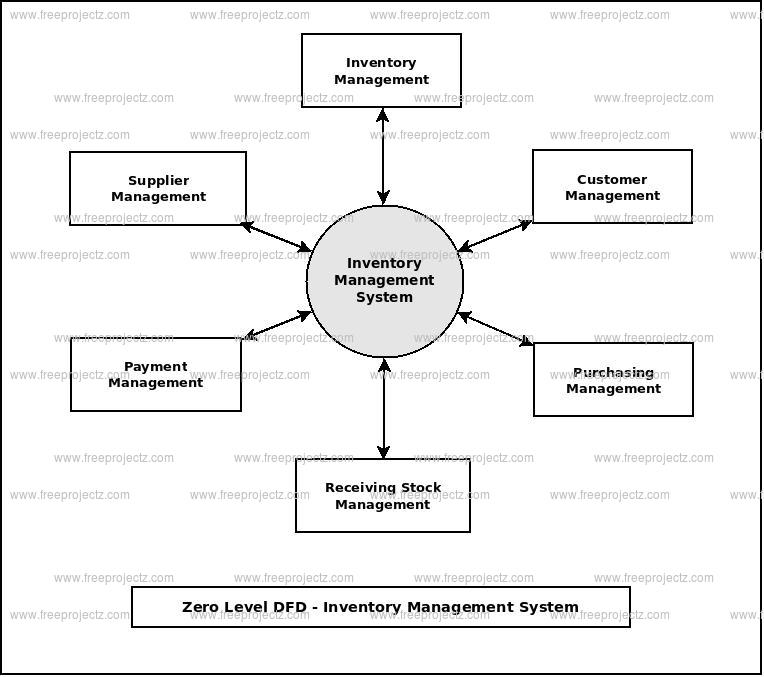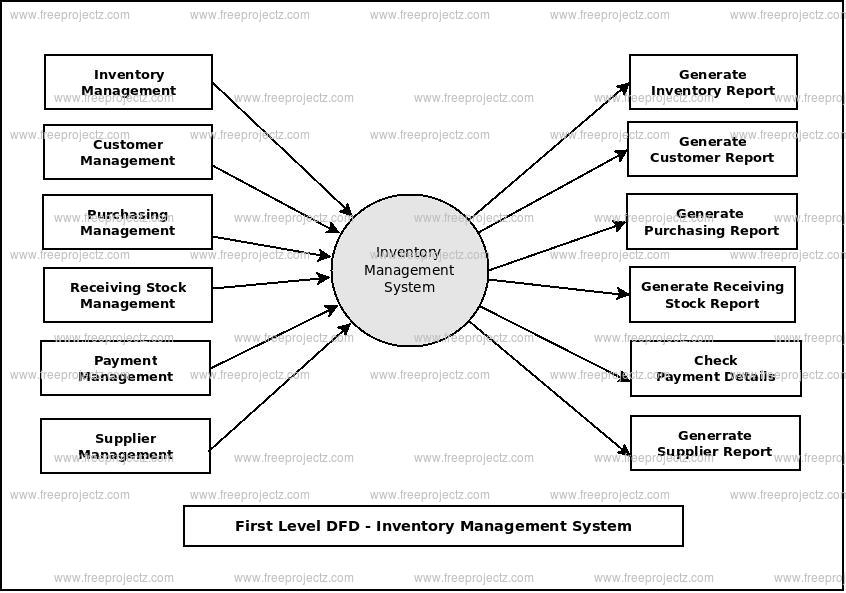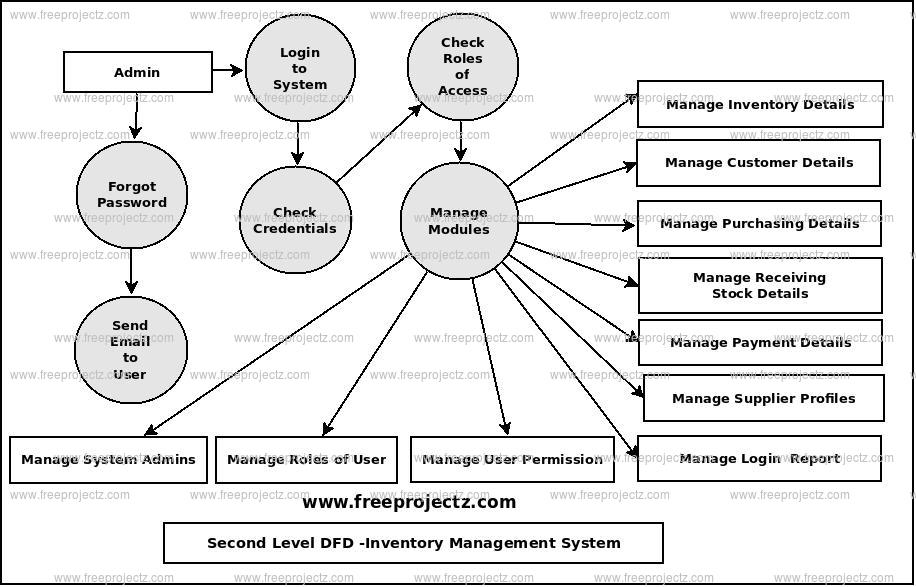- Posted By: namita
- Comments: 0
Posted By namita on July 5, 2017



Inventory Management System Data flow diagram is often used as a preliminary step to create an overview of the Inventory without going into great detail, which can later be elaborated.it normally consists of overall application dataflow and processes of the Inventory process. It contains all of the userflow and their entities such all the flow of Inventory, Customer, Purchasing, Receiving Stock, Payment, Supplier, Login. All of the below diagrams has been used for the visualization of data processing and structured design of the Inventory process and working flow.
Zero Level Data flow Diagram(0 Level DFD) of Inventory Management System :
This is the Zero Level DFD of Inventory Management System, where we have eloborated the high level process of Inventory. It’s a basic overview of the whole Inventory Management System or process being analyzed or modeled. It’s designed to be an at-a-glance view of Payment,Supplier and Login showing the system as a single high-level process, with its relationship to external entities of Inventory,Customer and Purchasing. It should be easily understood by a wide audience, including Inventory,Purchasing and Payment In zero leve DFD of Inventory Management System, we have described the high level flow of the Inventory system.High Level Entities and proccess flow of Inventory Management System:
- Managing all the Inventory
- Managing all the Customer
- Managing all the Purchasing
- Managing all the Receiving Stock
- Managing all the Payment
- Managing all the Supplier
- Managing all the Login

First Level Data flow Diagram(1st Level DFD) of Inventory Management System :
First Level DFD (1st Level) of Inventory Management System shows how the system is divided into sub-systems (processes), each of which deals with one or more of the data flows to or from an external agent, and which together provide all of the functionality of the Inventory Management System system as a whole. It also identifies internal data stores of Login, Supplier, Payment, Receiving Stock, Purchasing that must be present in order for the Inventory system to do its job, and shows the flow of data between the various parts of Inventory, Purchasing, Supplier, Login, Payment of the system. DFD Level 1 provides a more detailed breakout of pieces of the 1st level DFD. You will highlight the main functionalities of Inventory.Main entities and output of First Level DFD (1st Level DFD):
- Processing Inventory records and generate report of all Inventory
- Processing Customer records and generate report of all Customer
- Processing Purchasing records and generate report of all Purchasing
- Processing Receiving Stock records and generate report of all Receiving Stock
- Processing Payment records and generate report of all Payment
- Processing Supplier records and generate report of all Supplier
- Processing Login records and generate report of all Login

Second Level Data flow Diagram(2nd Level DFD) of Inventory Management System :
DFD Level 2 then goes one step deeper into parts of Level 1 of Inventory. It may require more functionalities of Inventory to reach the necessary level of detail about the Inventory functioning. First Level DFD (1st Level) of Inventory Management System shows how the system is divided into sub-systems (processes). The 2nd Level DFD contains more details of Login, Supplier, Payment, Receiving Stock, Purchasing, Customer, Inventory.Low level functionalities of Inventory Management System
- Admin logins to the system and manage all the functionalities of Inventory Management System
- Admin can add, edit, delete and view the records of Inventory, Purchasing, Payment, Login
- Admin can manage all the details of Customer, Receiving Stock, Supplier
- Admin can also generate reports of Inventory, Customer, Purchasing, Receiving Stock, Payment, Supplier
- Admin can search the details of Customer, Payment, Supplier
- Admin can apply different level of filters on report of Inventory, Receiving Stock, Payment
- Admin can tracks the detailed information of Customer, Purchasing, Receiving Stock, , Payment



































